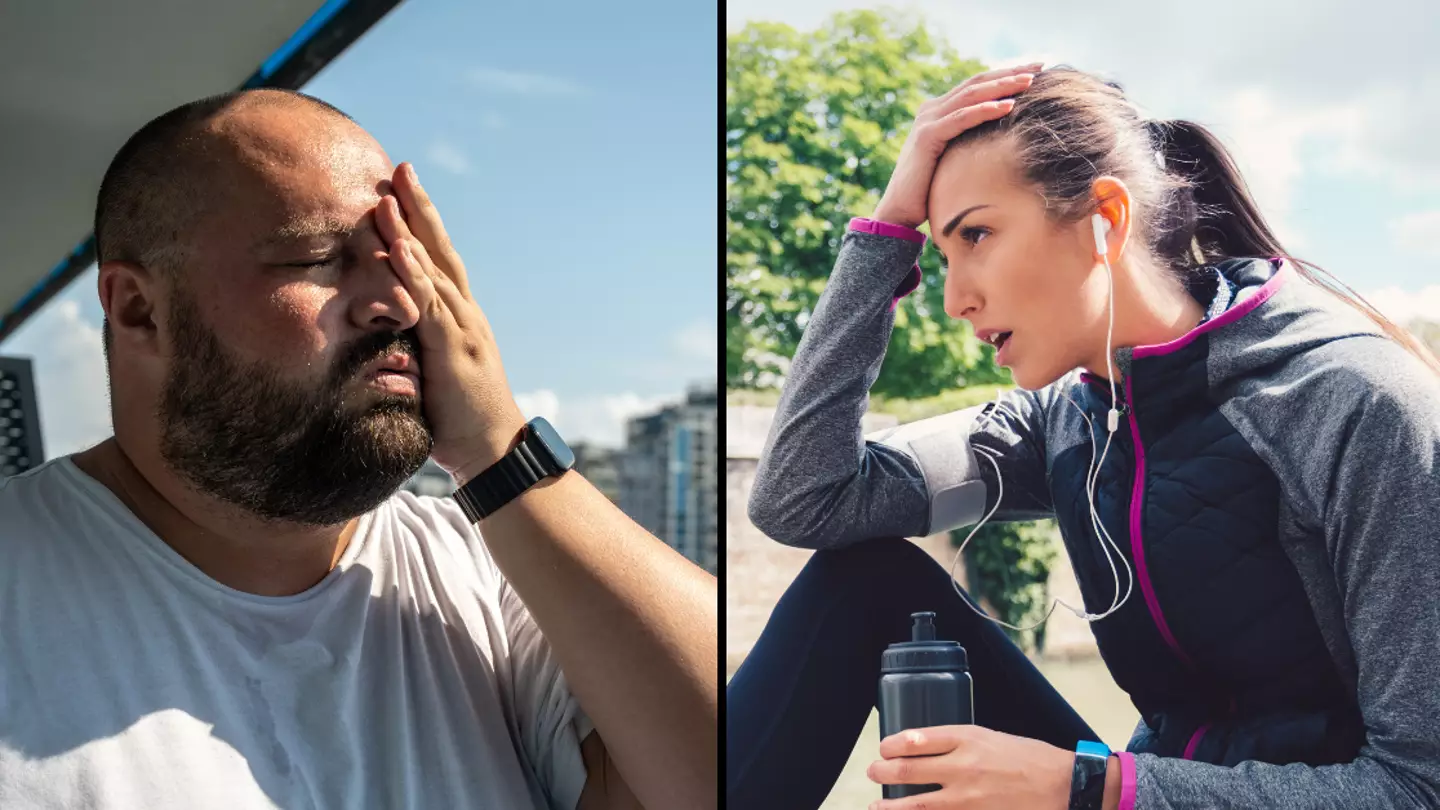
Doctors have finally given an explanation on why we suffer more headaches and migraines when we're on holiday.
Sure, a significant number of us might put it down to the all inclusive bar that we've been supping away at since midday. And if that's you, you accept the consequence (before going again).
But many of us might have woken up with a splitting headache despite only a couple of drinks - or feel it creeping over our skulls as the day goes on, leading to an early bed in a dark hotel room.
Advert
Many of us left in this situation find it happen to us when we're going from a rainy, cold United Kingdom to somewhere hotter, whether a city break in eastern Europe or the Mediterranean coastline.
And if that's you, fear not. There's a reason scientific reason behind why you might end up with a pounding headache.
It's because of a new study from researchers at the University of Cincinnati College of Medicine, Icahn School of Medicine at Mount Sinai, Errex Inc and Teva Pharmaceuticals USA. Inc, which has looked at the relationship between warmer climates and getting a migraine.
“Weather change is one of the most common trigger factors for migraine,” says Vincent Martin, MD, director of the Headache and Facial Pain Center at UC's Gardner Neuroscience Institute and UC Health physician. He is the study’s lead author and president of the National Headache Foundation.

These findings from the study, which looked at use of migraine preventing drug Fremanezumab and whether it could prevent headaches caused by temperature increases, were presented at the American Headache Society’s 66th Annual Scientific Meeting from 13 to 16 June in San Diego, California.
Fremanezumab, which is sold as Ajovy, is administered by injection under the skin, and is part of a set of monoclonal antibodies that have hit the market in the past six years to treat migraine in patients. This class of drugs blocks a protein known as CGRP (calcitonin gene-related peptide) which is responsible for transmission of pain in the brain and nervous system.
Researchers cross-referenced 71,030 daily diary records of 660 migraine patients with regional weather data and found that for every temperature increase of 10 degrees Fahrenheit daily, there was a 6 percent increase in occurrence of any headache. However, during the time periods of Fremanezumab treatment the association disappeared.
“This study is the first to suggest that migraine specific therapies that block CGRP may treat weather associated headaches,” says Fred Cohen, a study co-author and assistant professor of medicine at Icahn School of Medicine at Mount Sinai in New York.

Martin adds that if the results are confirmed in future studies the drug therapy has the potential to help many people with weather triggered migraine.
A study by the Baylor College of Medicine found that headaches that seem to be caused by the heat may really be due to dehydration. When the body becomes dehydrated it is believed to trigger a headache due to narrowing blood vessels as the body loses water and electrolytes
“If you are already prone to headaches, such as migraines, this could be a trigger,” said Dr Doris Kung, associate professor of neurology at Baylor. “One way to try to prevent this type of headache is by drinking plenty of water when you are spending the day outside and taking a break from activity.”

However, Kung said headaches shouldn’t be ignored. If they are frequent, you should see a neurologist, and if they are accompanied by neurological symptoms like weakness, numbness, slurred speech or altered mental activity you should head to the emergency room.
Vincent Martin, from the University of Cincinnati study, added: “What we found was that increases in temperature were a significant factor in migraine occurrence across all regions of the United States. It’s pretty amazing because you think of all the varying weather patterns that occur across the entire country that we’re able to find one that is so significant.”
Al Peterlin, who retired as chief meteorologist at the U.S. Department of Agriculture and co-author of the study, said: "Hippocrates, the father of medicine, believed that weather and medicine were intimately linked. A couple thousand of years later, we are proving that weather matters in human health."
Topics: Environment, Hacks, Health, Weather, Holiday, Travel